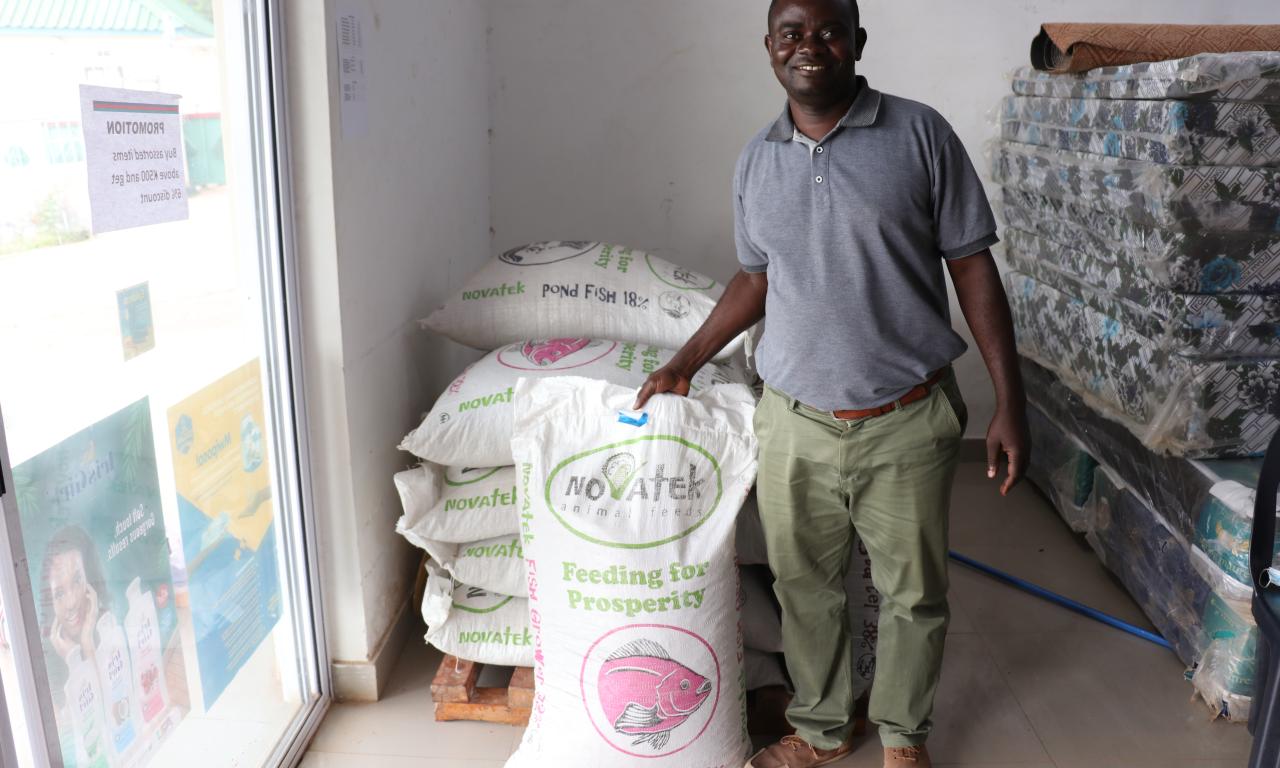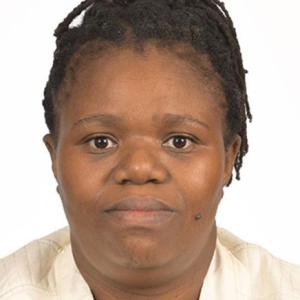
- Cosmas Chachi has transformed Triple Blessings Center, his supermarket and restaurant business, with WorldFish's help. By linking with farmers in his district he has shifted from importing to locally sourcing fish.
-
Cosmas now trains and sponsors local farmers, and is integrating sustainable practices into his business.
-
Triple Blessings Center's growth showcases the effectiveness of inclusive, climate-smart models in enhancing Zambia's aquaculture, supported by global initiatives.
Cosmas Chachi owns and runs Triple Blessings Center, a supermarket and restaurant in Luwingu, Northern Zambia.
Before his introduction to WorldFish, Cosmas had no proper linkage with farmers in the district where he could buy fish to supply the growing demand from his clients so he bought fish from 948km away in Lusaka from established wholesalers and distributors
As part of its interventions, WorldFish identified Cosmas’s business, Triple Blessings as one of the Small and Medium Enterprises (SMEs) to work with in promoting market linkages. WorldFish provided business management training to him and other SMEs.
Cosmas says that the training he received, including the fish feed business line, has improved his revenue.
“I am now able to manage my stock and business through the training received from WorldFish including keeping digital business records,” he said.
The business can now supply 200kg of locally sourced farmed fish per week and over 2.8 tons per month to urban consumers in its sphere of influence. The business buys fish from local smallholder fish farmers linked to it through the various fish value chain interventions implemented in the area.
Cosmas notes that locally farmed fish sells faster than imported fish; hence, he has extended his partnership with smallholder farmers beyond just providing an offtake market, also providing extension services to ensure a constant supply of fish that meets the quality demanded by his clients. He has also expanded beyond the supermarket and now venturing into fish farming, receiving recognition from the Department of Fisheries for having harvested the highest amount of fish in the district in 2022-2023.
Cosmas says he has further been inspired to farm fish and poultry using integrated agriculture aquaculture because he sees more growth prospects in these commodities. In 2022, he set up seven demonstration ponds to train smallholder farmers on better management practices so that they could buy feed from him and supply him with the fish that he needed to meet the demand for the product in Luwingu.
Furthermore, he has gone the extra mile by sponsoring 20 farmers (10 women and 10 men) in Kachila village within his community to produce fish jointly. He is training this group and provides it with inputs like fingerlings and feed. Cosmas buys fish from them at the end of the farming season. He believes that such strategies will stimulate farmers to learn fast and provide a consistent supply of fish, which is important for his business.
“I want them to continue producing because it is not good for the business to have fish in the shop today and nothing tomorrow”, he says
Cosmas is now networked with other SMEs and business people in the province and beyond. He is also increasingly receiving acknowledgment from district officials and other players as a serious businessperson, an off-taker of fish, chickens, and other agricultural products.
"From the time you exposed me to the aquatic foods being produced in the local markets, I get many calls, even from the government through the farmers under the Citizens Economic Empowerment Commission (CEEC). As a business, it is important to provide what people want, so I have to strategize to make sure I meet my customers’ needs. I didn’t see this coming when I first started with you because my business focused on the restaurant and other assorted groceries and food items, but now I see a huge demand for local fish,” he explains.
WorldFish sought to improve access to fish, enhance nutrition, and create job opportunities for women and youth in Zambia's urban, peri-urban, and rural areas in Northern and Luapula provinces by promoting inclusive pro-poor business models to improve access to aquaculture inputs, output markets, extension, and climate-smart information systems. Triple Blessings Center owned by Cosmas Chachi, is one of the SMEs that benefited from these interventions.
Triple Blessings Center's growth into a local aquaculture leader has been significantly fostered by WorldFish's support, including a strategic de-risking grant that has underpinned the center's market stability and expansion.
This initiative is part of a larger effort funded by NORAD, GIZ, and AICCRA, aiming to enhance aquaculture's resilience to climate change and improve market access, with the CGIAR Initiative on Aquatic Foods and Musika Development Initiatives lending technical support.
Training in fish farming, business mentorship, and the provision of logistical resources like refrigerated motorbikes have all been crucial to the business's success.


